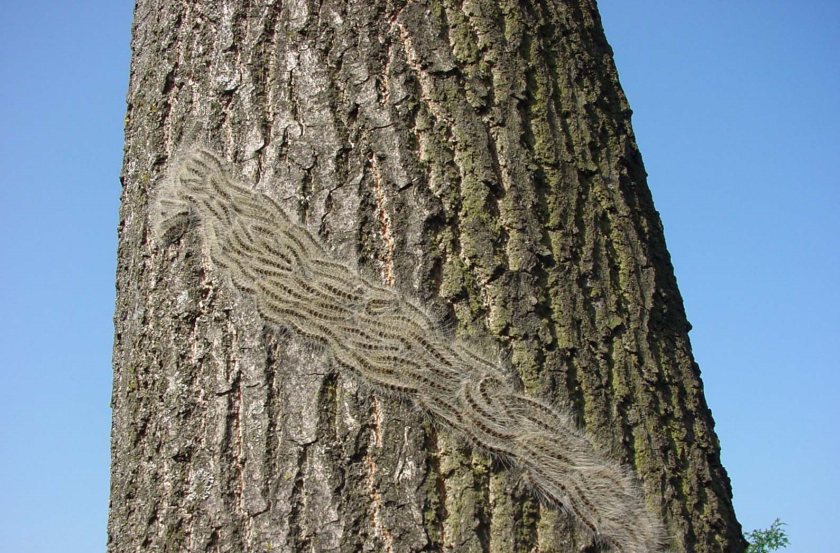
Farmers and landowners in the south of England are being urged to report sightings of oak processionary moth caterpillars, a pest which carries health risks.
The UK is now entering the greatest risk period as the caterpillars emerge between June and August to feed before turning into adult moths.
The Forestry Commission has urged farmers, landowners and the public to report sightings of the tree pest, which was first identified in London in 2006.
Since then, it has spread to some surrounding counties in the South East of England.
Its caterpillars and nests contain hairs which can cause itchy rashes, eye and throat irritations, with the Forestry Commission saying they should not be touched "under any circumstances".
Oak processionary moth caterpillars also feed on the leaves of several species of oak trees, which can cause trees to lose their leaves, negatively impacting their growth, and become more vulnerable to other stresses, like drought.
Andrew Hoppit, project manager at Forestry Commission, said: "It’s important that those living in affected areas understand the health risks so that they can be vigilant when enjoying outdoor spaces."
Professor Nicola Spence, UK chief plant health officer, added: "Reporting any sightings to the Forestry Commission will both minimise the pest’s spread and reduce the damaging impact it poses to tree health.
"The caterpillars and their nests can also cause irritation when touched by members of the public.
"As such, I would advise that those living in London and the surrounding areas avoid the pest."
A government programme to manage oak processionary moths has been in place since 2012.
